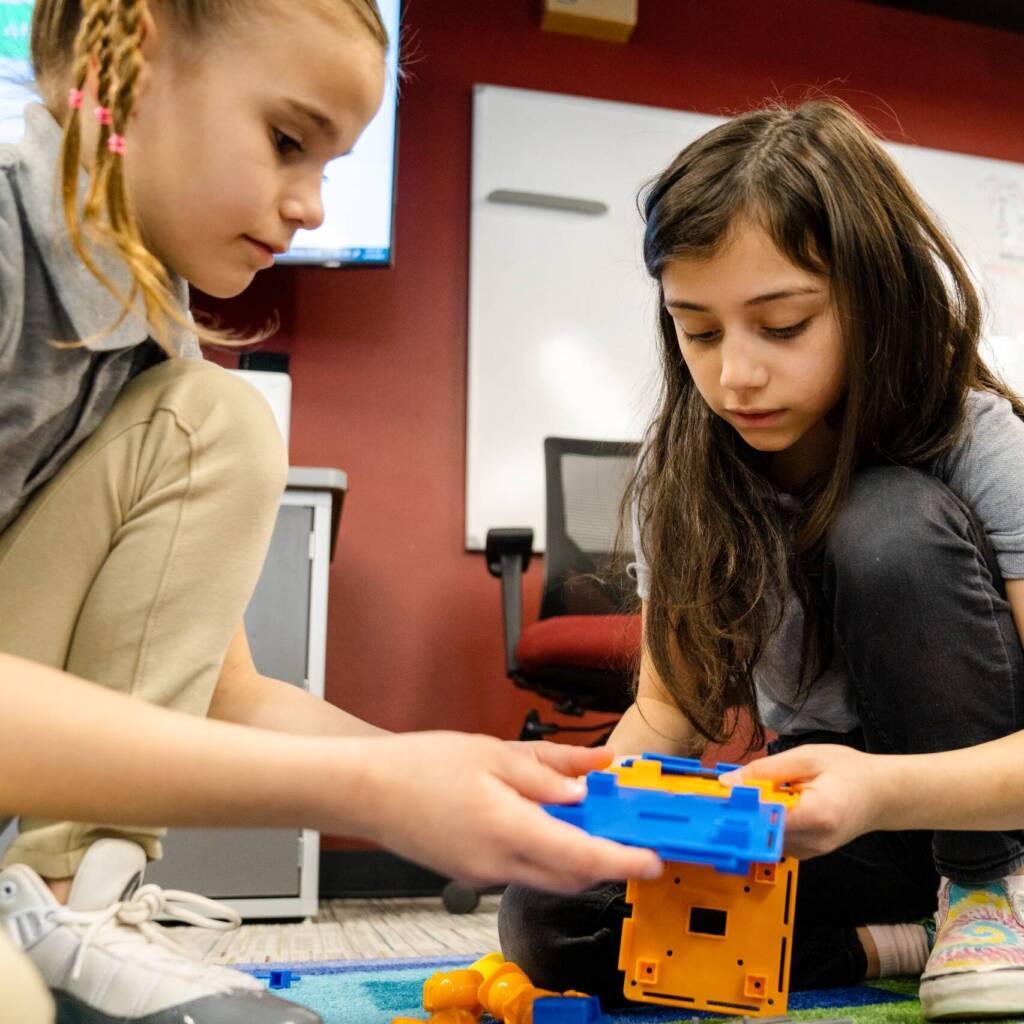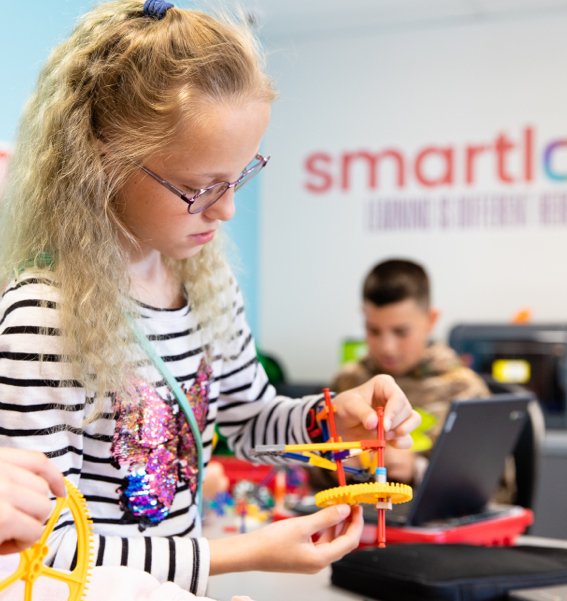Essential Life and Leadership Skills
Enable today’s learners to compete in tomorrow’s world.
SmartLab students gain critical life skills including leadership, flexibility, and autonomy. While core math and science concepts are critical, students will need other practical skills to thrive in tomorrow’s world. SmartLab’s suite of programs support core learning while teaching students to think critically, collaborate, communicate, and hone their creativity.

Here, learners gain confidence and independence.
The SmartLab approach to student-led learning provides ample opportunities to gain cross-functional skills.
Learn Collaboration
Students work in pairs and learn to take the lead, negotiate, collaborate, and make decisions.
Gain Independence
SmartLab-trained teacher-facilitators teach students strategies for finding answers and getting unstuck without first going to an adult for answers.
Develop Perseverance
Though students are responsible for setting and achieving goals, SmartLab projects require them to plan, execute, and finish projects within constraints–just like the workforce.
Struggle Productively
SmartLab training prepares facilitators to create a safe place where learners can explore, struggle, and try again.
SmartLab programs are designed to nurture next-gen skills.
“In a SmartLab HQ, students are immersed in learning that’s engaging, relevant, and aligns perfectly with core content areas. Most important, students own their education and take their learning to uncharted territory. There, they’re challenged and grow real-life skills in a real-world environment.”
Explore Our SmartLab Learning Programs
Ready to start planning your own SmartLab?
We’re excited to hear from you. Let’s change the way your students engage with math and science–in and outside the classroom.


